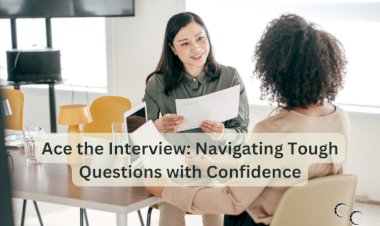The Essential Skills Recruiters Seek in Teachers

Teachers hold a vital role in shaping the minds of future generations. Recruiters look for educators who possess a blend of professional expertise, empathy, and adaptability. These skills ensure teachers can engage their students, manage classrooms effectively, and foster a lifelong love of learning. Here are the essential skills recruiters seek in teachers:
Strong Communication Skills
-
The ability to explain complex concepts in simple, relatable ways.
-
Clear verbal and written communication for interacting with students, parents, and colleagues.
-
Active listening skills to understand students’ needs and concerns.
Classroom Management
-
Maintaining a positive, organized, and focused learning environment.
-
Effectively managing time to cover all curriculum objectives.
-
Handling classroom disruptions with confidence and fairness.
Subject Matter Expertise
-
A deep understanding of the subject(s) being taught.
-
Keeping knowledge up to date with the latest research, trends, and curriculum changes.
-
Developing engaging lesson plans that reflect expertise in the subject area.
Adaptability and Flexibility
-
Adjusting teaching methods to accommodate diverse learning styles and needs.
-
Modifying lesson plans in response to unexpected changes, such as technology issues or student disruptions.
-
Embracing new teaching tools and technologies to enhance learning experiences.
Empathy and Emotional Intelligence
-
Recognizing and addressing the emotional needs of students.
-
Building trust and rapport with students to foster a supportive environment.
-
Demonstrating patience and understanding in challenging situations.
Creative Problem-Solving
-
Developing innovative strategies to make lessons engaging and effective.
-
Addressing challenges such as low student motivation or varying levels of comprehension.
-
Using creativity to incorporate multimedia tools, games, and hands-on activities.
Collaboration and Teamwork
-
Working effectively with fellow teachers, administrators, and staff.
-
Sharing resources, strategies, and insights to benefit the school community.
-
Collaborating with parents to support students’ educational journeys.
Cultural Competence
-
Respecting and valuing diversity within the classroom.
-
Incorporating multicultural perspectives into lessons and activities.
-
Creating an inclusive environment where every student feels represented and valued.
Technological Proficiency
-
Familiarity with educational software, online learning platforms, and classroom tech tools.
-
Using technology to create interactive and dynamic lessons.
-
Adapting to virtual or hybrid teaching formats when necessary.
Organizational Skills
-
Keeping track of lesson plans, grading, and student progress efficiently.
-
Managing multiple responsibilities, such as extracurricular activities or committee involvement.
-
Staying organized to meet deadlines and deliver consistent quality.
Commitment to Professional Development
-
Participating in workshops, certifications, and training programs to improve teaching skills.
-
Staying informed about the latest educational policies, tools, and methodologies.
-
Seeking feedback and reflecting on teaching practices to foster continuous growth.
Assessment and Feedback
-
Designing fair and effective methods to evaluate student learning.
-
Providing constructive feedback to help students improve.
-
Using assessment data to identify and address learning gaps.
Passion for Teaching and Lifelong Learning
-
Demonstrating enthusiasm for the subject matter and the teaching profession.
-
Inspiring students through a genuine love of learning.
-
Encouraging curiosity and critical thinking in students.
By embodying these skills, teachers can create meaningful educational experiences that empower students to reach their full potential. Recruiters value candidates who are not only knowledgeable but also compassionate and innovative in their approach to teaching.






























